What it’s like to already be living in isolation in Antarctica, the only continent free from coronavirus
Sadie Whitelocks speaks to the Swedish chef spending most of her waking hours indoors, holed up in one of the most remote corners of the globe
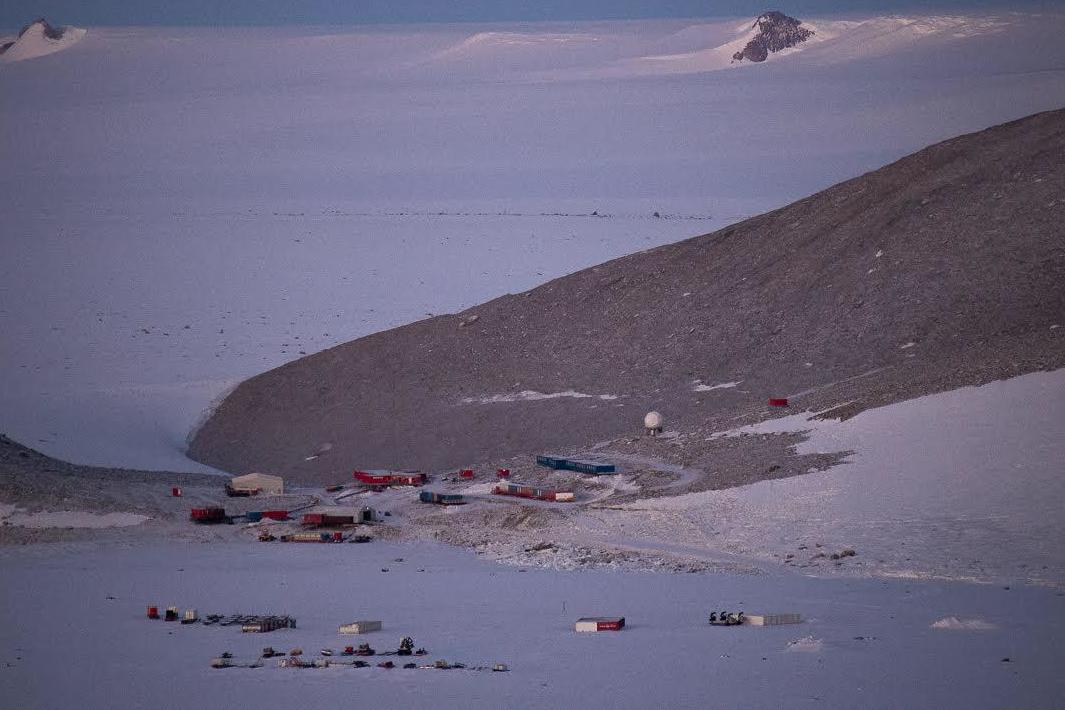
Reading, playing the harmonica, yoga and “meditation for sanity” – these are just some of the ways Karin Jansdotter from Sweden keeps herself busy while living in isolation.
The skilled 34-year-old chef isn’t dealing with the repercussions of the coronavirus pandemic, but rather, with remote living at the Norwegian Troll research base on Queen Maud Land in Antarctica, the only continent not to be hit by the pandemic.
She has been based at the snowy camp, where the annual temperature averages –25C, since November, with just five other people who are enrolled on a one-year contract.
Chatting over a high-speed internet connection, Jansdotter reveals that she and her team first got word about the coronavirus in January. “It’s been very surreal to watch the news unfold,” she says.
“It’s odd knowing that the whole world is doing what we are doing: isolating themselves.
“We are very happy to be here as this is the only continent without corona.
“I called my parents and told them to be careful and to stay home from work. If they get sick I can’t go home to them.
“Thankfully, they listened to my advice so that made me feel calmer.”
So, what brought the upbeat chef to such a remote spot?
Jansdotter says she got the bug for cold, icy places while working as a chef on polar expedition ships, and when she spotted the job at Troll, she “applied immediately”.
She adds, with an infectious sense of enthusiasm: “This is like a dream come true for me.
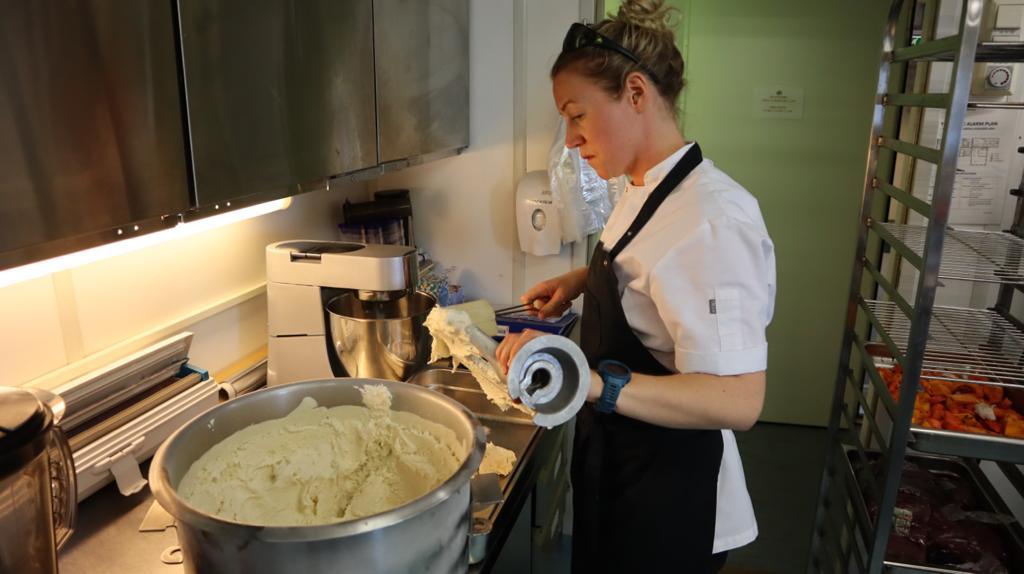
“I enjoy silence and I appreciate solitude and I love Antarctica.”
While the rest of the world comes to terms with living in isolation due to the coronavirus, Jansdotter says it’s something she and her team have been practising since landing at Troll by plane last autumn.
Along with meditation, Jandotter reveals that controlled breathing is another one of her coping mechanisms.
She says: “I have started a breathing routine every morning and it always sets me up for the day.
“It’s called the Wim Hof method, developed by the extreme Dutch athlete, and it’s great. The breathing can help build up your immune system.”
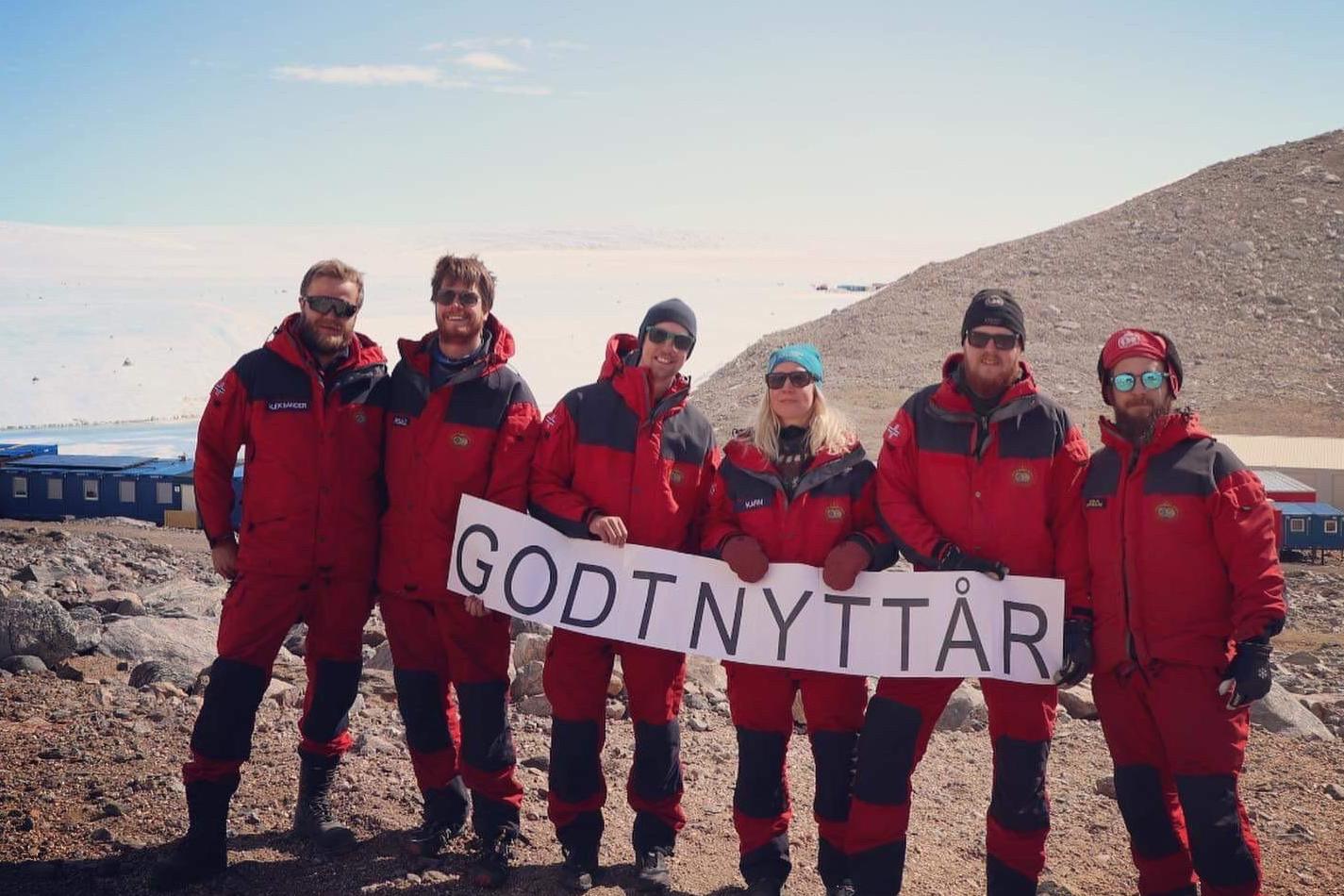
When it comes to daily exercise, Jansdotter says she either uses the small gym or goes for hikes in the surrounding mountains.
She says: “Being active is really important for isolation as it gives you all those endorphins that boost your mood.”
Another thing that helps lift morale, the Swede says, is good food.
Some of her recipe highlights at the base so far have included a colourful Thai beef stir-fry, ostrich steaks from Cape Town grilled on the barbecue and bread made using butternut squash.
She adds: “For festive occasions and birthdays, tasty food is especially important.
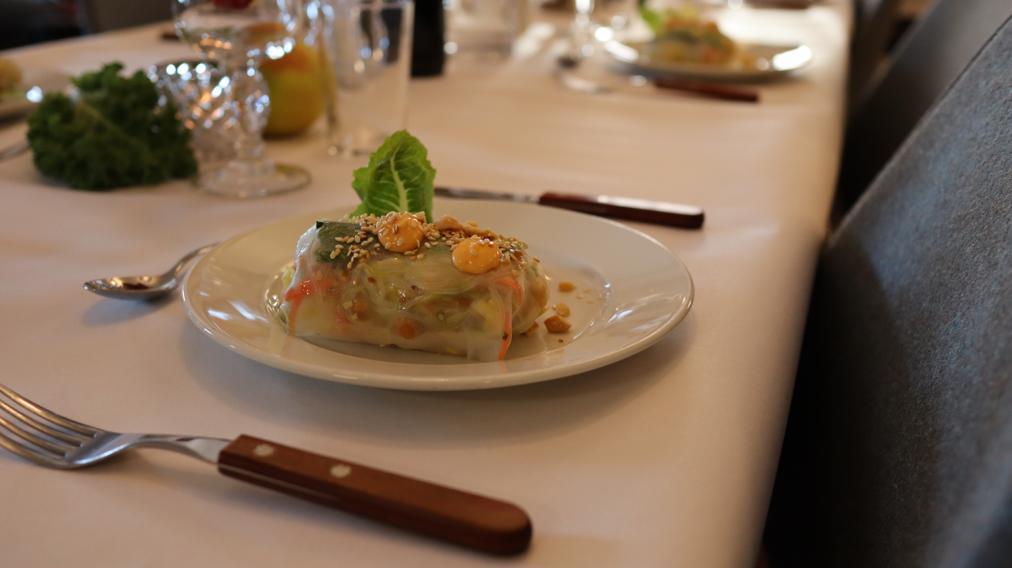
“On New Year’s Eve, my Vietnamese spring rolls with soya mayonnaise went down well.”
Another of Jansdotter’s popular creations is her instant apple and cinnamon ice cream that she makes using liquid nitrogen.
“We produce our own liquid nitrogen here at Troll,” the cook explains, adding that it’s part of the air pollution research carried out by the Norwegian Institute for Air Research (NILU).
Other research conducted at the Troll base revolves around meteorology, radiation, environmental toxins and seismology.
This scientific work doesn’t start until the summer season in November, and Jansdotter and her team were employed to keep the Troll base running during the frigid winter months.
Along with a chef, the other job roles advertised for overwintering season include an electrician, research technician, mechanic, plumber and doctor.
Jansdotter says she has two roles, as she also acts as the base team leader, keeping an eye on the laundry, cleaning duties and provisions.
Describing a typical day at Troll, Jansdotter says she gets up at 6am to read or write in her journal with a “big mug of dark roast Swedish coffee to hand”.
The chef says she likes to “light some candles and enjoy the silence” and early morning is when she’s most creative.
After having breakfast with her team, Jansdotter starts her working day at 8am, preparing a lunch that is generally served at 11.30am.
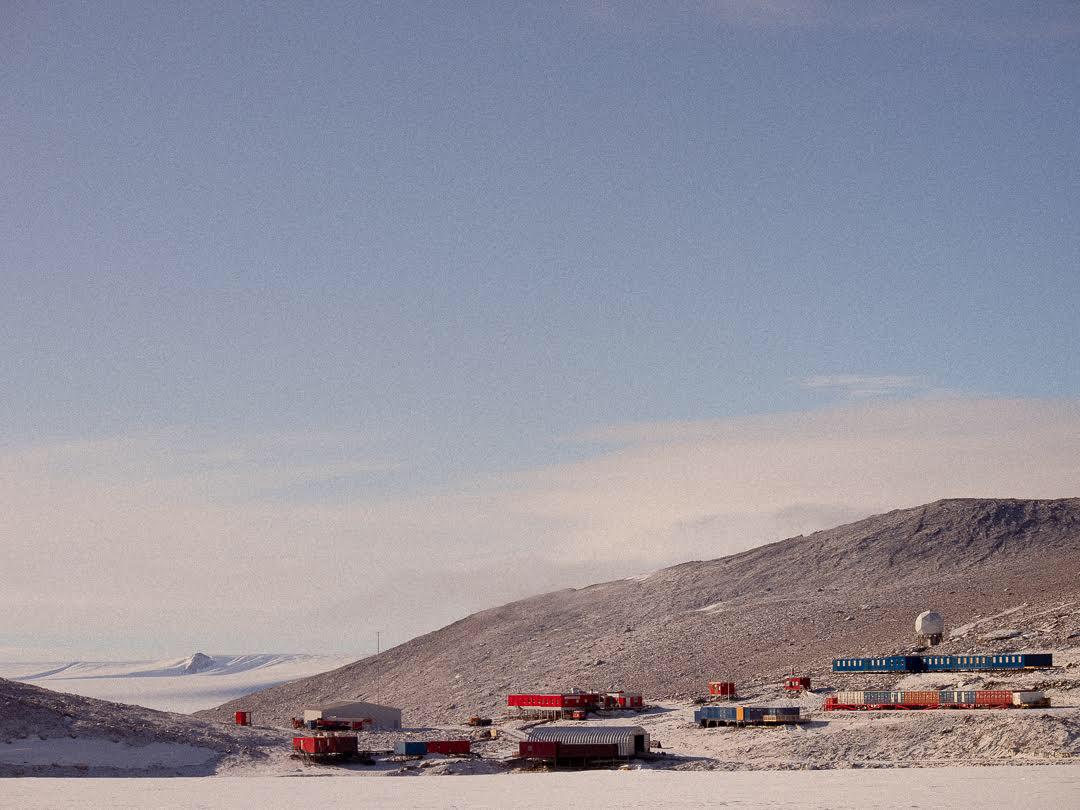
She says: “Sometimes I make breads, maybe I ferment some vegetables or I take my little electric car and drive out to my containers to ‘shop’ for food. I have five containers at the base in total.
“One contains dry food, two contain frozen goods and then there are two more with chilled produce.”
After lunch is served, there’s a session of washing up to do before preparations for dinner starts.
Jansdotter says earlier in the year, there was more fresh produce to work with as supply planes from Cape Town would come in; now the snowy runway is shut, she has to make do with the goods she has.
Following an early dinner at 3.30pm, the staff members clock-off for the day.
With it being pretty chilly outside, Jansdotter says the team generally spend their free time indoors, or if they go out, lots of layers are required.
Giving her creative juices time to replenish, Jansdotter gets the weekends off and the other staff members take it in turns to cook.
She adds that every Saturday, the six of them always watch a film together and everyone takes it in turns to pick.
So, what is Jansdotter most looking forward to when she leaves life in isolation come November?
Stopping for a moment to think, she muses: “I think I will need some time to integrate into life so I don’t have any big plans, except that I’m going to live in my cabin close to the lake, sit in front of my fire, walk in the woods and cook outside.
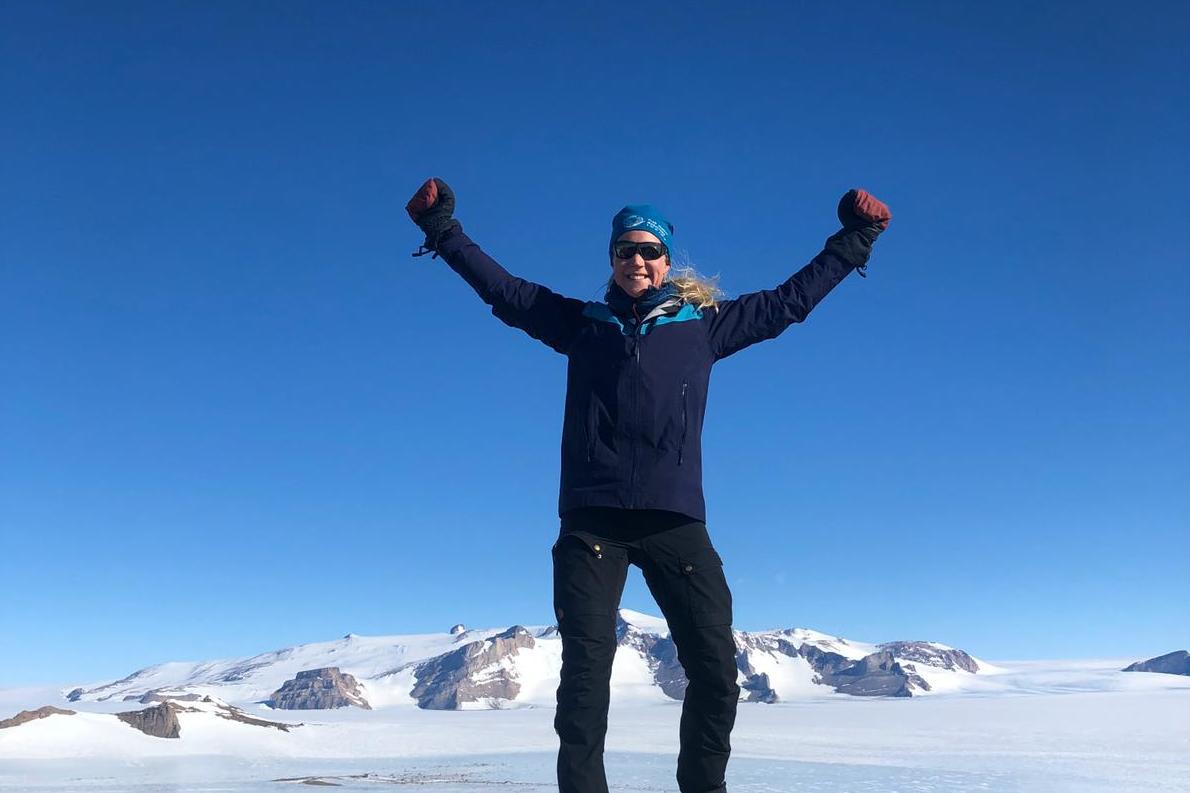
“I’m looking forward to spending time with my boyfriend again. He is Dutch and we were together three months before I came away.
“He recently bought a camper van so we might drive to the Scottish Highlands during the summer to hike, and from there we want to go to the Faroe Islands.
“We are both adventure seekers, but we have to see what the world looks like when I get back. Everything is so uncertain right now.
“I hope that the world will be a better place when I get home and that people and countries will go down the solidarity path and fight this epidemic virus together.”
In the meantime, Jansdotter says life at Troll goes on as normal.
She concludes: “We consider ourselves very lucky and happy to be here and that we got this job in these scary and bizarre times. We run the station as normal.
“We are part of a very fortunate group of people who are not going to meet anyone for the next seven months.
“We follow closely from the base what’s happening out in the world – it is, of course, the talk around the dinner table.”
With that, Jansdotter bids a farewell from thousands of miles afar, off to rustle up something delicious for dinner.
Join our commenting forum
Join thought-provoking conversations, follow other Independent readers and see their replies
Comments